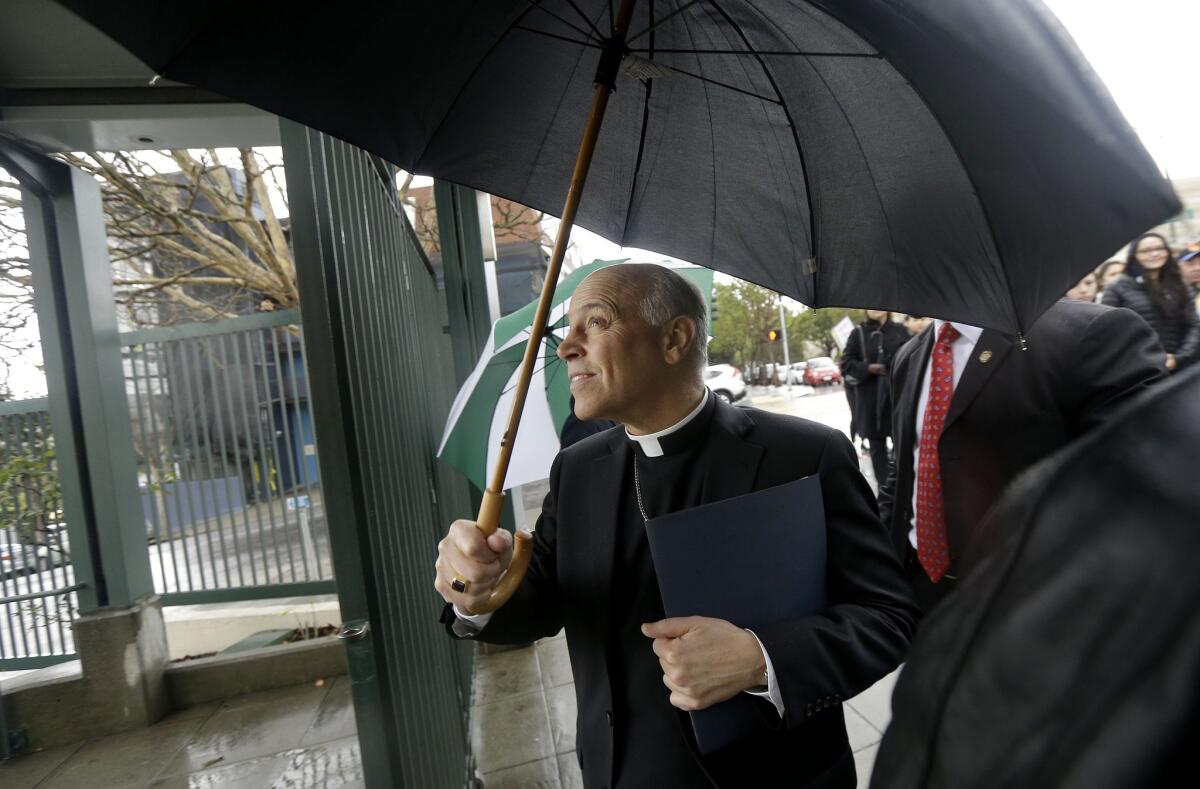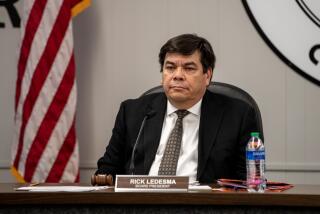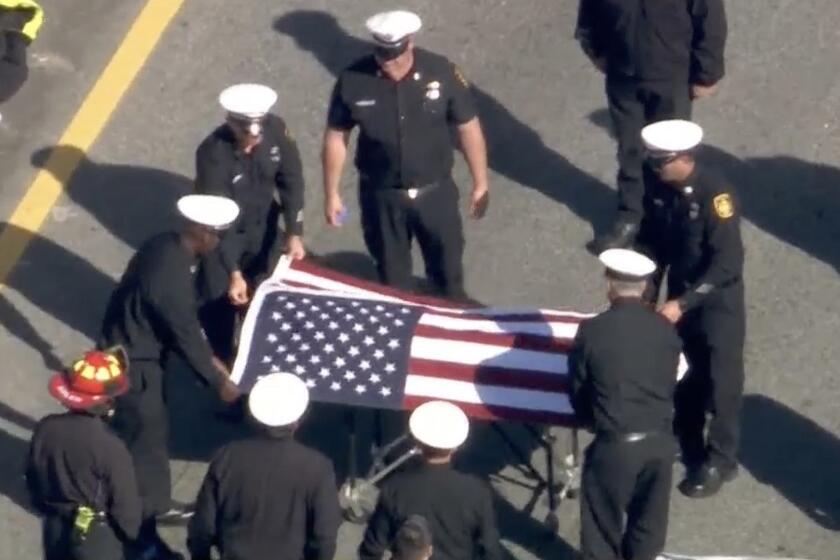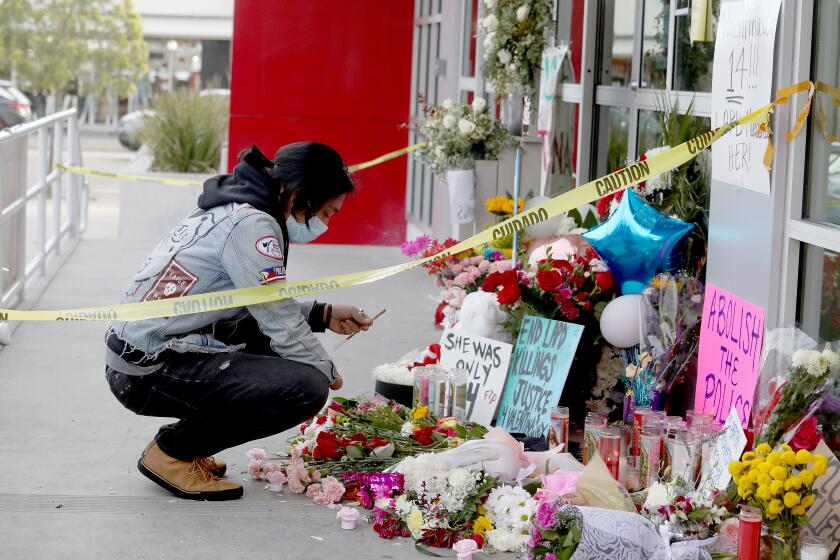S.F. archdiocese teachers overwhelmingly reject moral strictures

Eighty percent of faculty and staff at the four San Francisco archdiocese high schools subject to the archbishop’s new moral strictures have signed a petition rejecting his additions to the handbook for the next school year.
The petition, expected to be delivered to Archbishop Salvatore J. Cordileone Wednesday, says his language is “harmful to our community and creates an atmosphere of mistrust and fear” and asks him to keep the current employee handbook in place.
It comes in the wake of unanimous approval Tuesday by the San Francisco Board of Supervisors of a resolution calling Cordileone’s efforts to bring employees in line with strict sexual teachings “contrary to shared San Francisco values of non-discrimination, women’s rights, inclusion, and equality for all humans.”
The handbook clauses Cordileone unveiled early last month call on teachers, staff and administrators to comport themselves publicly and privately with Catholic teaching and ask them to “affirm and believe” that homosexual acts, masturbation and pornography are “gravely evil.”
Same-sex marriage, artificial reproduction and contraception are similarly described.
Cordileone is also seeking to define teachers as part of a ministry in the collective bargaining agreement currently under negotiation, which could exempt them from federal antidiscrimination law in the event of dismissal.
The board resolution urges the archdiocese “to fully respect the rights of its teachers and administrators, and pursue contract terms with ... educators that respects their individual rights, but also recognizes the informed conscience of each individual educator to make their own moral decisions and choices outside the workplace.”
Cordileone has stood firm in the face of growing protest from Bay Area parents, students and lawmakers. In response to a joint letter by eight Democratic state lawmakers criticizing his decision last month, he wrote:
“Would you hire a campaign manager who advocates policies contrary to those that you stand for, and who shows disrespect toward you and the Democratic Party in general?
“On the other hand,” he continued, “if you knew a brilliant campaign manager who, although a Republican, was willing to work for you and not speak or act in public contrary to you or your party -- would you hire such a person? If your answer to the first question is ‘no,’ and to the second question is ‘yes,’ then we are actually in agreement on the principle point in debate here.”
Cordileone, a canon law expert, is known nationally as a culture warrior who has placed particular emphasis on sexual teaching at a time when Pope Francis has moved toward more inclusionary language and pastoral emphasis. The faculty and staff petition now adds criticism from those most intimately affected by Cordileone’s proposals.
“We believe our schools should be places of inquiry and the free exchange of ideas where all feel welcome and affirmed,” they wrote, noting that the fear instilled by the language threatens “the rigorous inquiry and open exchange of ideas that is the hallmark of Catholic education.”
The high schools are in San Francisco, San Mateo and Marin counties.
At Sacred Heart Cathedral, 126 teachers and staff signed the petition, including teachers not covered by the collective bargaining agreement. At Serra High School, 87 teachers and staff signed; at Riordan 74; and at Marin Catholic, 68.
Jim Jordan, an English teacher from Sacred Heart Cathedral and one of the organizers of the petition, said in a statement: “As teachers, we are not only seeking to preserve a safe and vibrant community that supports education and the free exchange of ideas, but the safety and well-being of our students.
“This language in this judgmental context undermines the mission of Catholic education and the inclusive, diverse and welcoming community we prize at our schools. It is an attack not only on teachers’ labor and civil rights, but on young people who are discovering who they are in the world.”
Twitter: @leeromney
More to Read
Start your day right
Sign up for Essential California for news, features and recommendations from the L.A. Times and beyond in your inbox six days a week.
You may occasionally receive promotional content from the Los Angeles Times.







